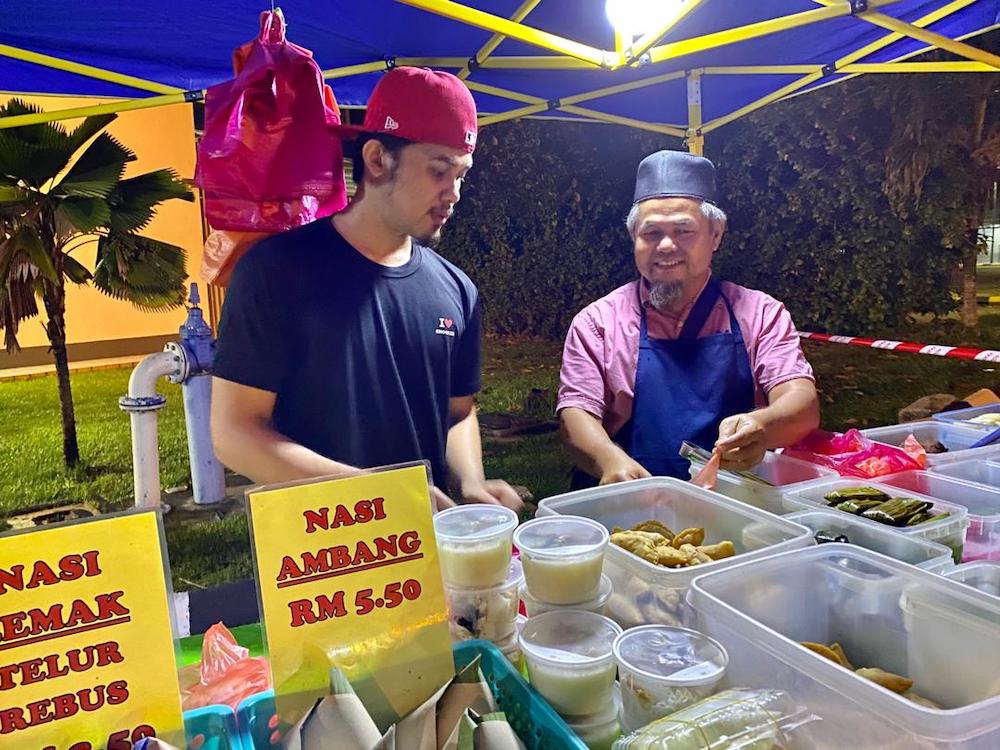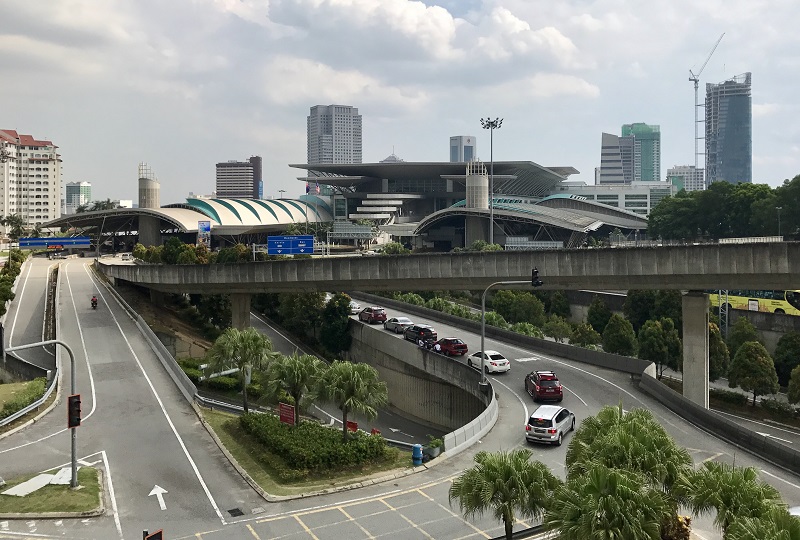JOHOR BARU, July 19 — It feels like life has returned to normal in most parts of the country. The traffic jams are back, schools have re-opened and Malaysians are enjoying great discounts at resorts and hotels as borders remain closed to foreign visitors.
Johor Baru, though, remains quiet even though many businesses in the city centre have opened.
Food hawkers and service outlets that have for years catered to a sizable Singaporean customer base, especially on weekends, are now suffering.
At one time, having a business in the city centre was considered a boon as cash-paying Singaporeans made up the bulk of customers.
Singaporeans came to eat, have haircuts, service their vehicles and even go for car or bike washes. This was such a common sight that many of these businesses even accepted Singapore dollars.
That all came to a stop when Malaysia closed its borders because of Covid-19.
Even the famous Bazaar Karat — a night market selling clothes, trinkets and food — which just re-opened, is not the hive of activity it used to be.
“We just opened on July 15 but due to the border not opening, we don’t expect a lot of people. For us, it is an opportunity to make a living,” said bundle clothes trader Ghazali Mat who has been operating in the area for the past two years.
He said if business does not pick up, he has another option to trade at another night market in Kota Tinggi which is about 40 kilometres from the city centre.
Ghazali said many traders based in the city centre tend to be over reliant on customers from across the Causeway.
“As businessmen, we need to try other options. These days, everyone is affected and not just us who are based in the city,” he said.
Among the hardest hit are motorcycle service outlets.
“Look around... the entire city’s motorcycle service business has been affected,” said Along Motorsports proprietor Tarmizi Abdul Nasir.
The seasoned mechanic, who specialises in repairs and restoration work, said business has been extremely slow.
“For me, my business depends a lot on Singaporeans. I would say 80 per cent of my customers are Singaporeans.
“On normal days, my daily cash till will have at least RM2,000 or more. On good days such as weekends, it can even reach more than RM4,000,” he said.
However, Tarmizi said the reality now is that his cash till now only holds a maximum RM200 a day.
“Workshops in the JB city are different from the ones in housing areas or outside of the city. We depend a lot on Singaporeans and also those working in Singapore for business,” explained Tarmizi.
Car wash operator Shah agrees with Tarmizi as his business has been very slow since opening for the past two months.
He said the many car wash outlets along the Jalan Abdullah Tahir stretch in the city centre depended heavily on Singaporeans for business.
“I would say a good 70 per cent of our customers used to be Singaporeans and the figure would be more on weekends.
“We used to operate 24 hours a day but since being allowed to re-open, we close before midnight... Singaporeans made up the late night crowd,” said Shah, who supervises two car wash outlets in the city centre.
He said if the situation persists, his boss may close one outlet to save on operating costs.
Preparing for the months ahead
When the government announced the reopening of hair salons from June 10 onwards, hairdresser Amy Anuar had reason to rejoice as his outlet In Bandar Baru Uda here could finally re-open.
“It was a relief after nearly three months of not operating and still paying rental. Things started slow at first, but soon it occurred to me that my business may never be the same as before.
“For most professional hairdressers and barbers in Johor Baru, Singapore customers are an important part of our clientele,” said Amy when met recently at his newly-renovated hairdressing salon.
Bandar Baru Uda, popularly known as BBU, is a nearby township that has in the past few years attracted Singaporeans.
Its many food outlets and the Angsana Johor Baru shopping centre plus popular garment and furnishing outlet Jakel have always been a hit with Singaporean shoppers.
He went on to explain that his Singaporean customers pay more than Malaysians as they regularly leave tips for the staff.
“Basically, Singaporean customers were an important source of my income. They contributed at least close to half of my monthly income,” said Amy, adding that on good months nearing festivities he could take home about RM4,500 to RM5,000 in a month because of his Singaporean customers.
Amy, who is in his early 30s, hopes that his business will pick up once the Johor-Singapore borders fully reopen by year’s end.
He said some of his regular Singaporean customers messaged him asking how he was and this gave him a morale boost.
“Despite not having a positive outlook for this year, I will still continue with my business as it is better than not having any income at all,” said Amy.
Food trader Wan Mustapa said business has been slow. “It’s definitely not like before... I used to get Malaysians who work in Singapore buy packed food from me at 4am. With the borders closed, my income has fallen by 30 per cent,” he said, adding that he may branch out to food delivery to supplement his income.

Jasri Amir who has a makeshift food outlet in nearby Taman Perling said that his business has seen a drop of below half of his normal earnings.
“Previously when the borders were open, our customers were mainly Malaysians working in Singapore. My daily income was about RM1,000 per day. With the current situation, I’ll be happy if we can reach RM500,” said Jasri who has been operating in the same area for the past 12 years.
Taman Perling which is just outside of the Johor Baru city centre is also the main entry point to the Second Link crossing into Singapore via Gelang Patah.
Another trader, Man Ahmad, who runs a burger outlet agreed that business has been slow after the MCO period.
“For us the Singapore factor plays a role. But at the same time, competition is catching up as there are other outlets selling burgers in the same vicinity after the MCO.
“But for us, we will still maintain our quality and price despite the competition,” said Man.
It looks like all these businesses have no other choice but to carry on... while hoping the orders re-open sooner rather than later.




















